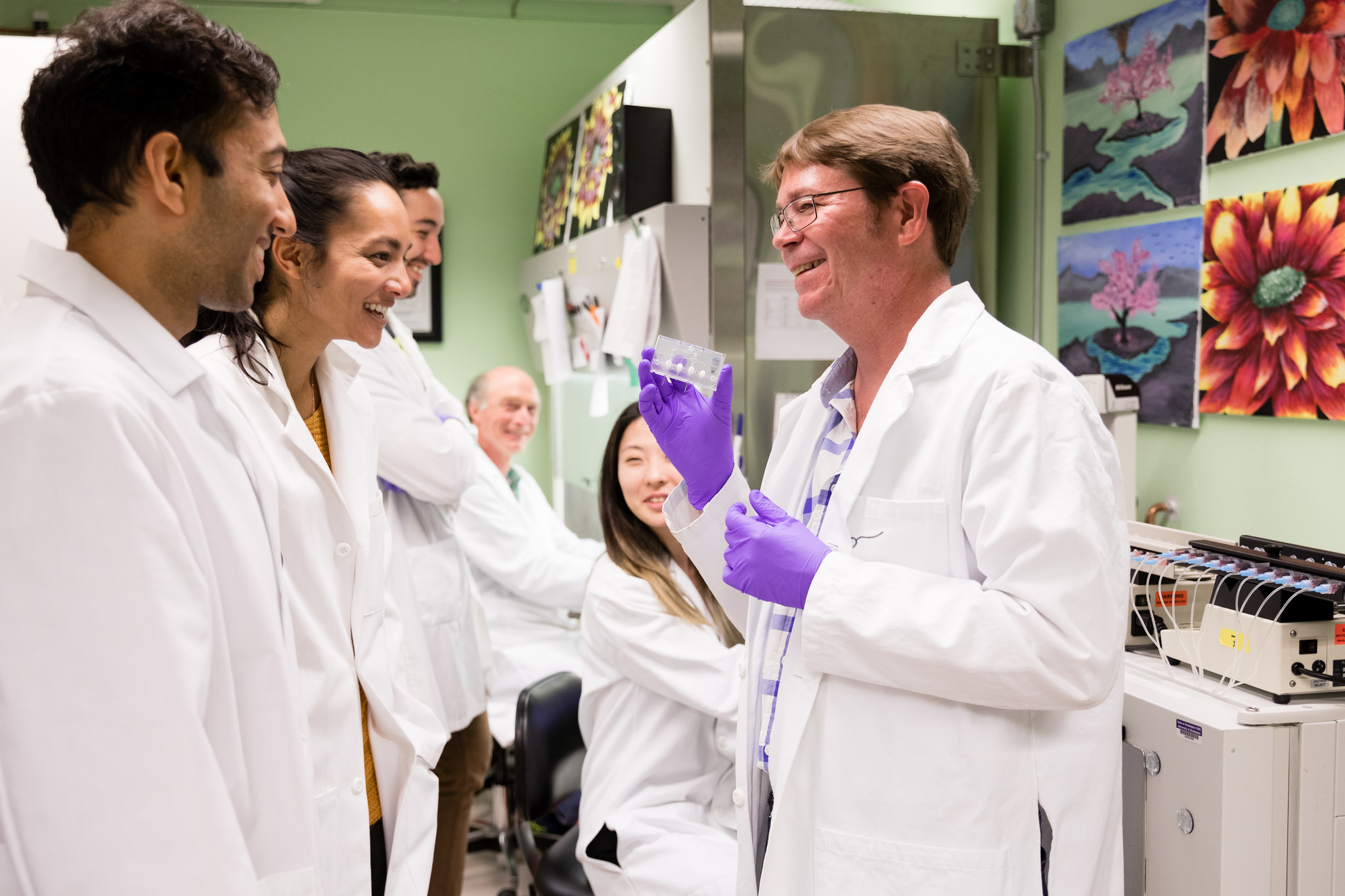UW Pharmacy and UW Medicine team to study how weightlessness accelerates kidney damage
In as early as 2018, a rocket carrying a payload that includes 24 microfluidic chips about the size of credit cards will transport an extraordinary University of Washington kidney research project to the International Space Station.
University of Washington School of Pharmacy and UW Medicine researchers, in collaboration with the Seattle-based organ-on-a-chip company, Nortis, have been developing the “kidney-on-a chip” as a laboratory model for understanding how this organ is affected by drugs, toxins and environmental exposures. The chips contain a central chamber lined with live kidney cells.
This novel space medicine project is an attempt to understand how microgravity and other factors worsen kidney health. Researchers hope to use these discoveries to design better treatments for proteinuria (the presence of protein in the urine that signals possible kidney problems), osteoporosis (bone loss) and kidney stones on Earth.
“Weightlessness is an accelerator,” said UW School of Pharmacy faculty member and Kidney Research Institute investigator Ed Kelly. “In the microgravity environment on the International Space Station, kidney problems are more common and develop in weeks or months, instead of decades. By studying the kidney on a chip after a few weeks in space, we expect to learn more about how osteoporosis, kidney stones and other kidney conditions develop, which may lead to breakthroughs in treatment and prevention.”
The first phase of the project will be to launch chips that measure the effect weightlessness has on healthy kidney cells. The second phase will launch about 18 months later and will measure the effect of weightlessness on diseased kidney cells. Astronauts on the space station will monitor and maintain the chips and then return them to Earth after several weeks for the UW team to examine.
Read more at: https://sop.washington.edu/uwkri-kidney-on-a-chip-will-travel-to-international-space-station/
